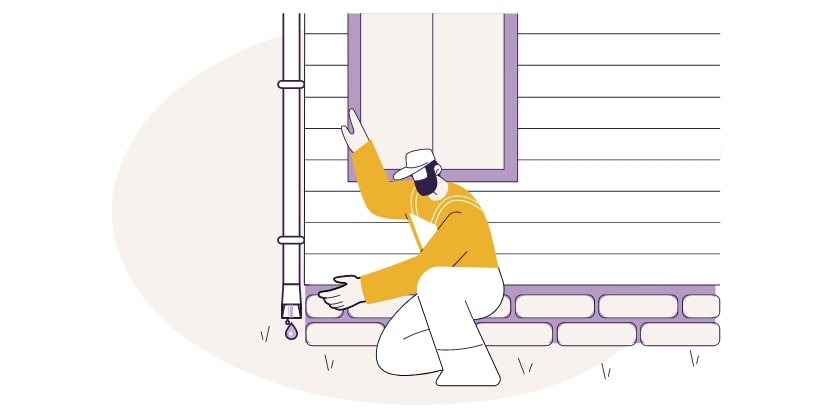Spring cleaning is about more than simply decluttering and sorting through old, tired belongings and scrubbing long-forgotten baseboards (that have seen better days); it’s an opportunity to protect your home from potential hazards that can cause damage, general inconvenience, and, ultimately, lead to homeowners insurance claims.
Each step in your spring cleaning routine plays a critical role in preventing specific types of damage, ensuring a safer—and more resilient—home. You can help minimize the risks and maintain a safe home by proactively taking preventive measures.
So, keep reading to learn nine steps to include in your spring cleaning routine to safeguard your home against damage and possibly prevent homeowners insurance claims.
At a glance:
- Regular maintenance, such as cleaning gutters and inspecting roofs, safeguards against potential structural issues caused by water and weather-related damage.
- Periodic testing of safety devices mitigates potential health risks associated with fire and gas leaks, ensuring early detection and prevention.
- Routine inspections and repairs, coupled with an understanding of insurance coverage, help in maintaining a secure and resilient living space.
1. Clean gutters and downspouts
Gutters and downspouts are your home’s first line of defense against water damage. Over time, debris, leaves, and other detritus can clog these essential draining systems. Clogged gutters and downspouts can lead to water overflow, causing water to seep into your home's foundation. This excess moisture can result in basement flooding, foundation cracks, and even structural damage.
Regularly cleaning gutters and downspouts can help ensure proper water flow and prevent issues, preserving the integrity of your home's foundation and structure.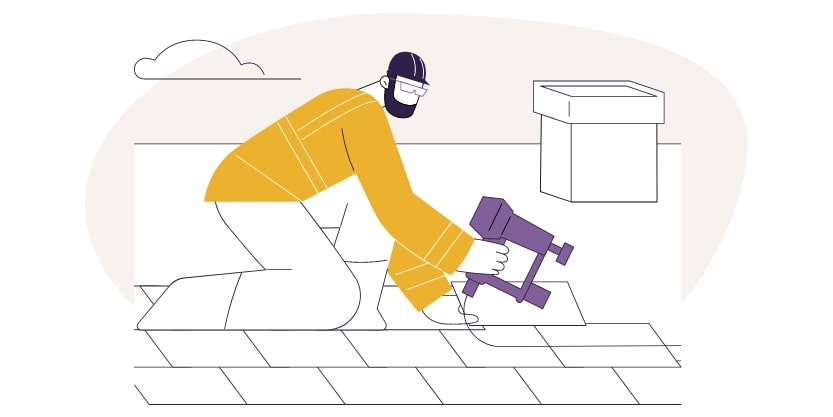
2. Check for roof damage
Any damage to a roof, including loose or missing shingles can allow water into your home, leading to water stains, weakened ceilings, and more. A proactive inspection and timely roof repair can prevent water damage and safeguard the integrity of your home’s interior from potential deterioration.
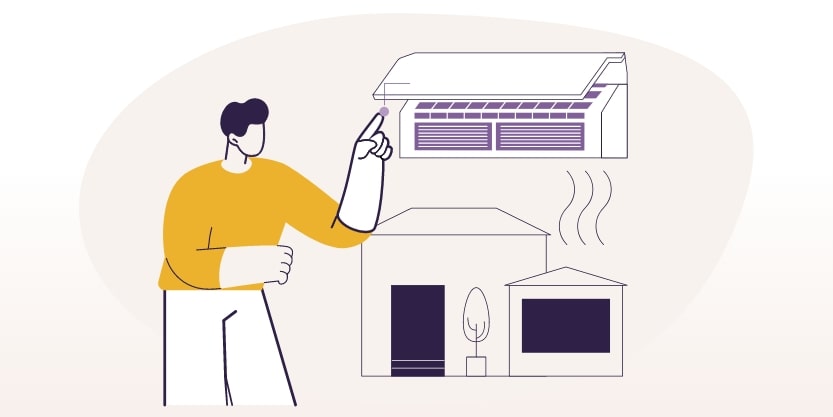
3. Service HVAC systems
Heating, ventilation, and air conditioning (HVAC) systems require regular maintenance to maintain a proper working condition. Neglected HVAC systems can collect dust and other debris, reducing efficiency and potentially causing malfunctions.
Regular maintenance can not only improve air quality, but it can also help prevent potential fire hazards stemming from overheating, guarantee your system functions efficiently. Start by cleaning or replacing filters to improve air quality and reduce strain on your HVAC system. For extra protection, consider professional servicing of your HVAC systems. 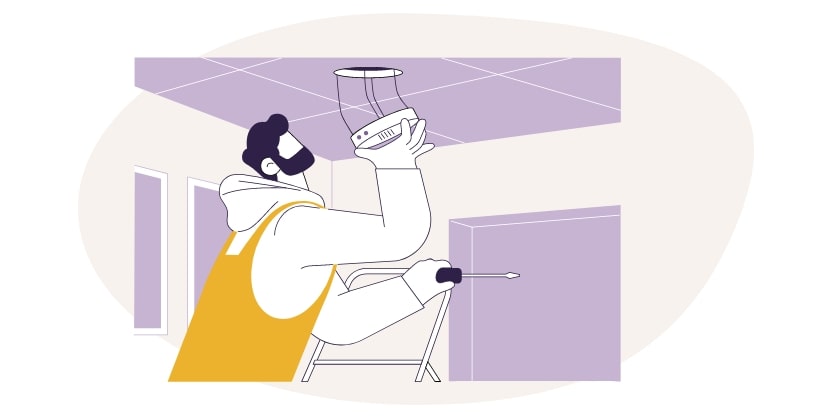
4. Test smoke and carbon monoxide detectors
Smoke detectors are vital to early detection of fires, while carbon monoxide detectors protect against this odorless, colorless gas. These life-saving devices should be tested regularly to ensure they are working properly, and reduce the risk of fire, smoke, or carbon monoxide-related damage and health hazards.
Start by replacing batteries and conducting tests to ensure that they are working properly and can alert you to potential fire or gas hazards.
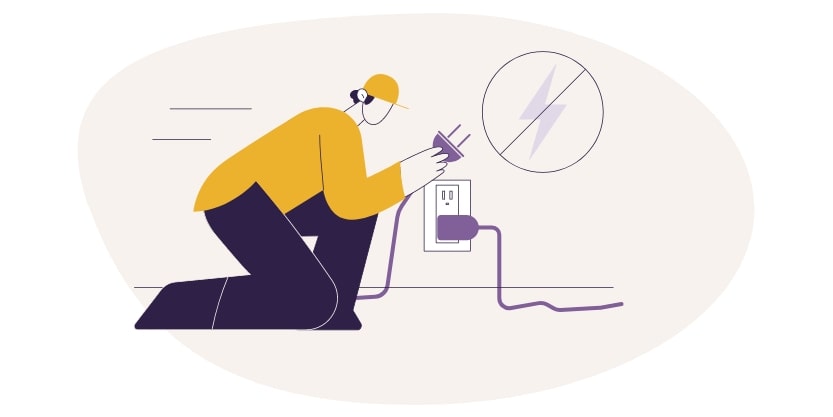
5. Inspect electrical wiring
Electrical issues are a common cause of house fires, often caused by faulty electrical wiring resulting in extensive damage to your home. From overloaded circuits, to frayed wires or faulty connections, improper wiring can pose a serious risk to your home and family.
To help prevent potential fires and protect your home, family, and personal belongings, look for signs of wear and tear on wires, overloaded outlets, or faulty connections, and address these issues as soon as you can. 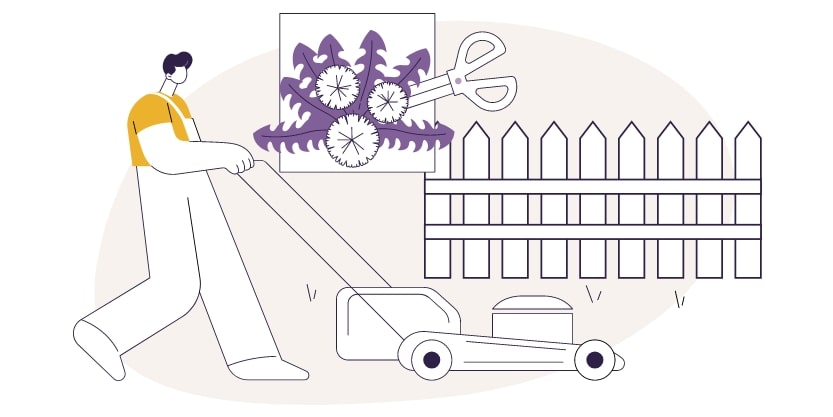
6. Secure outdoor areas
Outdoor maintenance is just as important as interior maintenance. Neglected outdoor spaces can pose several risks. For instance, loose boards on decks or fences can cause a number of accidents, leading to injuries or damage, while overgrown vegetation can damage structures and allow pests to creep in.
Regular maintenance helps reduce these risks. Start by inspecting and reinforcing fences, tightening or replacing loose or broken boards on decks and patios, and perform landscaping at a level you are comfortable with. These steps can not only improve the curb appeal of your property, but also potentially prevent accidents and property damage.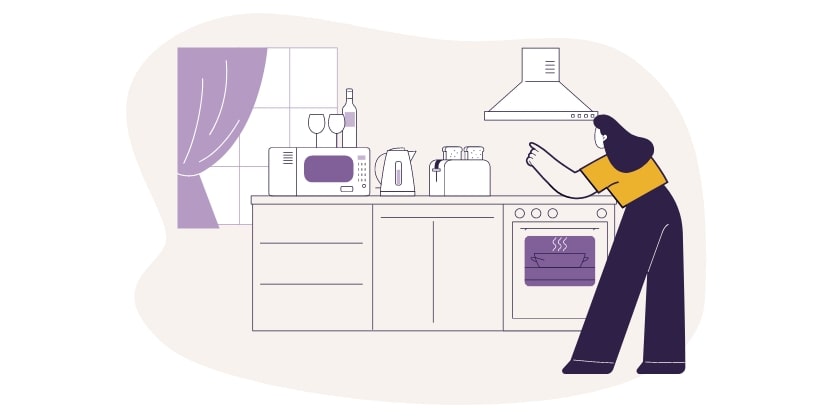
7. Clean and service appliances
Cleaning and maintaining household appliances regularly is important for their longevity—and your safety. Uncleaned dryer vents are a leading cause of house fires, while ignored refrigerator coils can overwork, leading to malfunctions.
Routine maintenance can help minimize fire hazards and extend your appliances' lifespans. Be sure to regularly clean dryer vents to prevent lint buildup, and clean refrigerator coils and range hoods to reduce fire risks and enhance efficiency. Additionally, inspect any other appliances you use, regularly or infrequently, and ensure they are in proper working condition; consider replacing if repair is not an option.
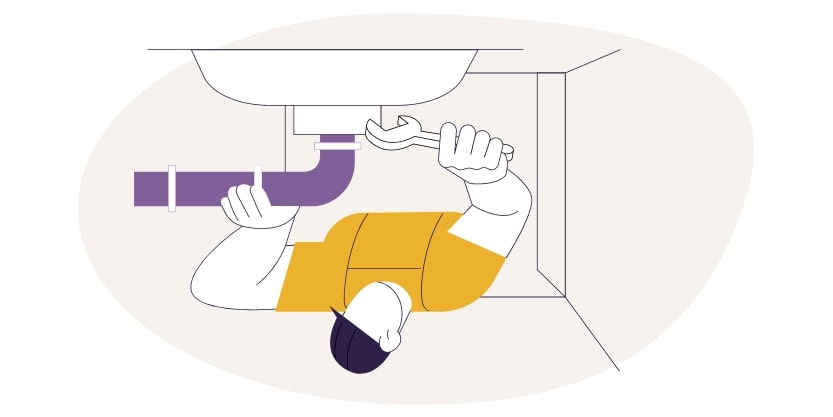
8. Inspect plumbing
Water damage can result from minor leaks that go unnoticed. Leaks in plumbing can lead to structural issues, mold growth, and damage to personal belongings. Regular inspection and prompt repairs prevent severe water damage and maintain the integrity of your home.
Consider creating a schedule to check for leaks, including under sinks, around toilets, and in basements or crawl spaces. Addressing these issues quickly can prevent water damage and mitigate mold and fungi growth.
9. Review your home insurance coverage
Take the time to review your homeowners insurance policy, whether or not you are nearing your renewal date. Understanding your insurance coverage can help reduce financial risk by ensuring you maintain adequate coverage against potential risks, including fire, water damage, structural issues, and personal liability—at all times.
Regularly reviewing and updating your policy keeps you prepared for unforeseen incidents and ensures your homeowners insurance policy continues to align with any changes in your property or lifestyle. Understanding the extent of your coverage can provide peace of mind and financial security.
The value of spring cleaning
Spring cleaning isn’t just a seasonal chore; it’s a proactive way of protecting your home and reducing home safety risks. Dedicating time to spring cleaning helps you not only maintain a clean living space, but can also significantly reduce the chance of damage that could lead to filing homeowners insurance claims—and the financial repercussions that follow.
So when the temperatures begin to rise, and the flowers start to bloom, it's the perfect time to embrace the renewal of spring by refreshing your living space, decluttering and purging items you no longer use, and taking care of any necessary home repairs.

